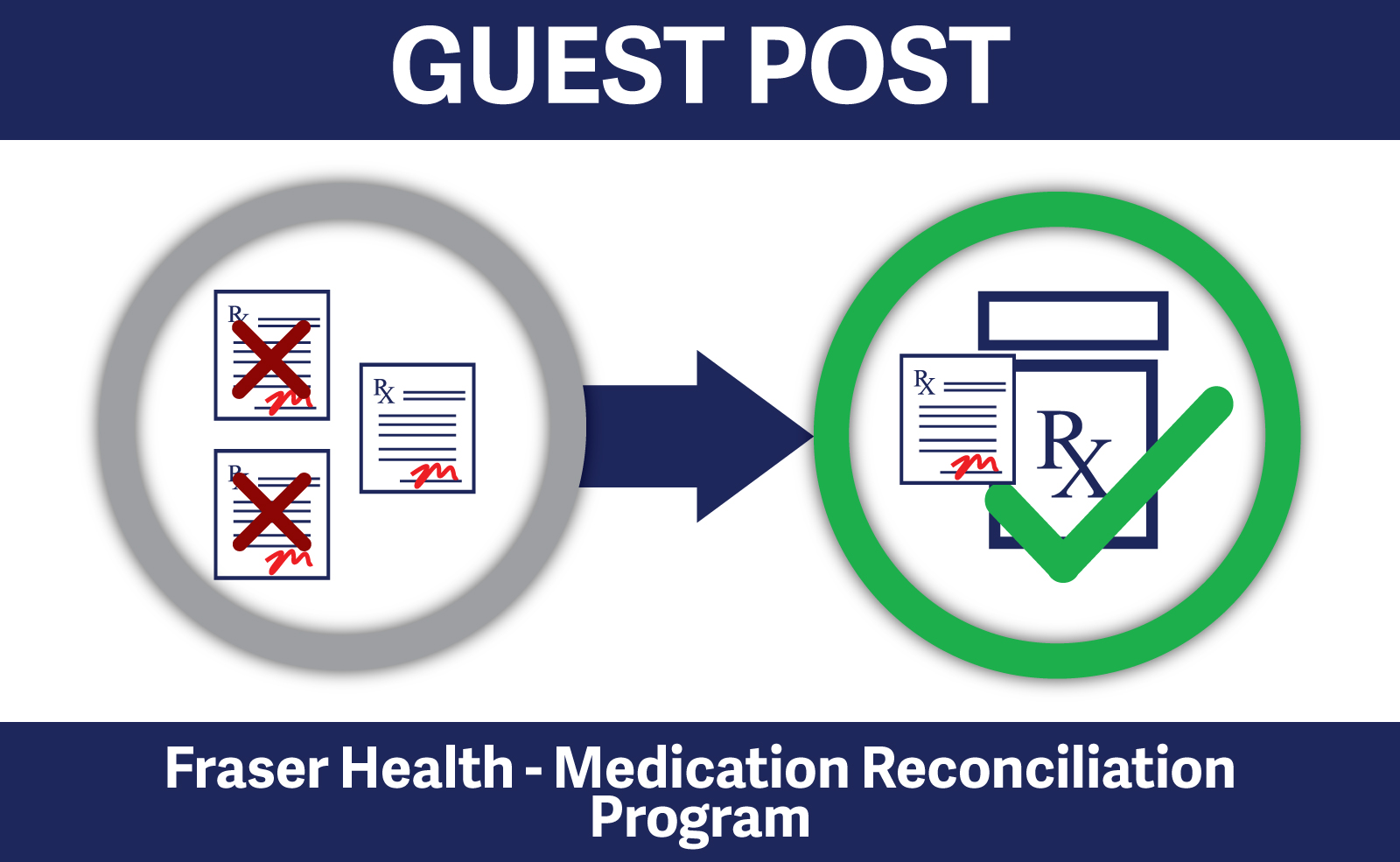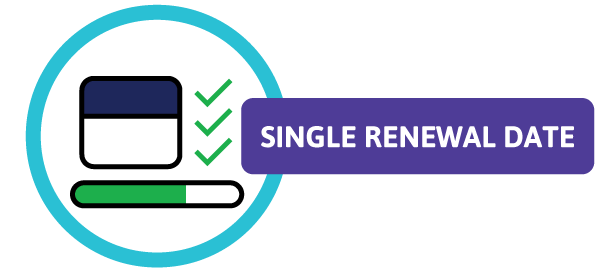
Guest Post: Feedback needed on Fraser Health’s new MedRec process for hospital discharge
Fraser Health Authority is seeking Feedback from community pharmacy professionals on its new discharge medication reconciliation process.
“Medication reconciliation is a formal process in which healthcare providers work together with patients, families and care providers to ensure accurate and comprehensive medication information is communicated consistently across transitions of care. Medication reconciliation requires a systematic and comprehensive review of all the medications a patient is taking (known as a BPMH) to ensure that medications being added, changed or discontinued are carefully evaluated. It is a component of medication management and will inform and enable prescribers to make the most appropriate prescribing decisions for the patient.”
- Institute for Safe Medication Practices Canada
Medication reconciliation plays an important role in protecting patient safety by helping prevent medication errors such as omissions, duplications, dosing errors, or drug interactions. It is also a “Communication” Required Organization Practice by Accreditation Canada.
The Canadian Medical Protective Association also notes that:
- Medication reconciliation (MedRec) is an emerging area of focus in patient safety and a recurring theme in CMPA cases
- 58% of patients involved in medication reconciliation-related cases died or suffered serious clinical outcomes
- Communicating effectively about medication through reconciliation is necessary for the delivery of safe patient care, reduces adverse drug events and assists physicians in managing risks
Fraser Health Authority has been working diligently to implement a Medication Reconciliation process. With a multi-level stakeholder engagement plan, processes have been designed by multidisciplinary teams, including clearly defined roles and accountabilities, effective, user friendly tools and a detailed monitoring system.
Admission MedRec, the documentation of patient’s home medications upon admission, has already been implemented and current completion rates for patients admitted through the Emergency Department, continue to exceed our targets.
Over the past year, Fraser Health has been focusing has on implementing a new discharge Medication Reconciliation process. Discharge MedRec is intended to ensure the patient is provided with a complete list of medications they should be taking following discharge from hospital in addition to the list being shared with the patient’s community care providers.
Discharge MedRec has been implemented in most hospitals across the Fraser Health Authority and community pharmacies should now be receiving the discharge prescriptions.
Feedback Needed
We need your feedback on the new discharge MedRec process and discharge prescriptions provided to community pharmacies involved in a patient’s care.
Please take a moment to review the sample discharge prescriptions and share your thoughts.
Sample Discharge Prescriptions |
Questions to Guide FeedbackPlease use the following questions to help guide your feedback on our MedRec Program. Are you able to communicate a complete and accurate list of medications the patient should be taking when they get home? What features of the discharge MedRec prescription can be improved upon?
We welcome any comments or feedback. Please provide your feedback to [email protected]. Note: If the above email address does not work with your email host, please send your comments to [email protected] and the feedback will be forwarded along. |
.png)
The Medication Reconciliation Team
The Medication Reconciliation (MedRec) Team at Fraser Health is a small group of Pharmacists and Clinical Nurse Educators assigned to implement MedRec at all transitions of care across the Health Authority. This group works in partnership with Clinical Sponsors and Senior Leaders, multiple internal and external stakeholders, including patients, and provincial and lower mainland working groups to develop evidence based best practise approaches. Processes have been designed by multidisciplinary teams; there are clearly defined roles and accountabilities, effective, user friendly tools and a detailed monitoring system. With effective Project and Change Management and a continued focus on quality improvement and sustainment, as well as the focus on meeting patient safety needs, we are sure to see a tremendous improvement in how we communicate medications.
- Guest Post, Medication Reconciliation, patient


 Share
Share



_Page_1.jpg)